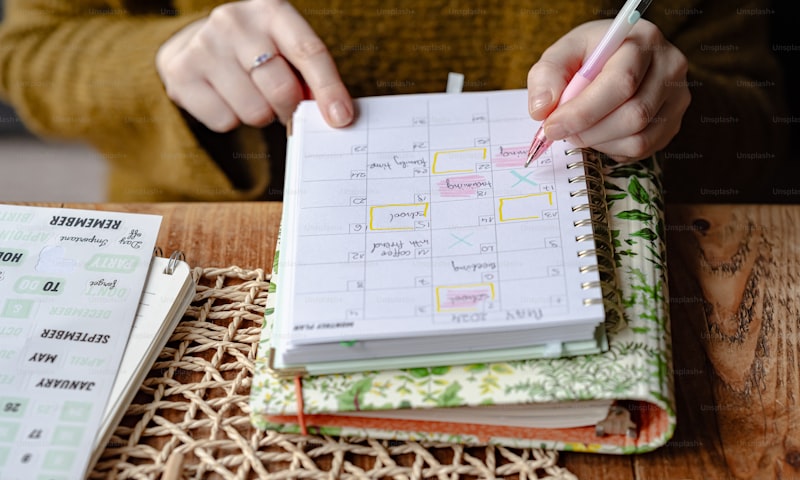Prioritizing Wedding Expenses: A Comprehensive Guide to Budgeting for Your Big Day
Prioritizing Wedding Expenses: A Comprehensive Guide to Budgeting for Your Big Day
Introduction
Planning a wedding can be one of the most exciting yet overwhelming experiences in life. With countless decisions to make and emotions to manage, the financial aspect can quickly become a source of stress. Prioritizing wedding expenses is crucial to ensure that you stay within your budget while still achieving the wedding of your dreams. This article will guide you through the process of budgeting and prioritizing expenses, allowing you to focus on what truly matters on your special day.
Understanding Your Wedding Budget
Before you dive into the specifics of prioritizing wedding expenses, it's vital to understand how to create a wedding budget. Start by determining how much overall funds you have available for your wedding. This can include personal savings, contributions from family, or any other financial sources. Once you have an amount in mind, break it down into essential categories of expenses.
| Wedding Expense Categories | Percentage of Budget |
| Venue | 30% |
| Catering | 25% |
| Photography | 10% |
| Attire | 10% |
| Flowers and Decor | 10% |
| Entertainment | 5% |
| Miscellaneous Expenses | 5% |
Key Areas to Consider When Prioritizing Wedding Expenses
When it comes to allocating your budget, consider these primary areas:
1. Venue
The venue often takes up the largest chunk of your wedding budget, usually around 30%. Choose a place that not only fits your style but also accommodates your guest list. Popular venues can be booked a year in advance, so start looking early to get the best options within your budget.
2. Catering
Food is one of the most critical elements of your wedding reception, accounting for about 25% of your budget. Decide whether you want a sit-down meal, buffet, or food stations, and don’t forget to consider dietary restrictions. Sampling various caterers will also help you make an informed decision.
3. Photography and Videography
Capturing your big day is essential, which is why photography should constitute around 10% of your budget. Invest in a reputable photographer and videographer to ensure that all the precious moments are beautifully documented. Schedule interviews and ask for portfolios to find the style that resonates with you.
4. Attire
Your wedding attire—whether it be the bridal gown, groom’s suit, or bridal party outfits—answers to the remaining 10% of your budget. This can vary significantly but consider the lifetime value of your wedding attire. Don't forget about alterations and accessories as additional costs.
5. Flowers and Decor
Flowers and decorations can elevate the aesthetic of your wedding but also can quickly spike your budget if not managed wisely. Allocate about 10%. Choose seasonal blooms and DIY elements where possible to save costs without sacrificing style.
6. Entertainment
About 5% of your budget should go toward entertainment, such as live bands or DJs. Research local talent and check reviews. A good DJ or band can set the tone for your reception and keep guests engaged all night long.
7. Miscellaneous Expenses
These include items like wedding favors, gifts for the bridal party, and other small expenses that can quickly add up. It's wise to set aside about 5% of your budget for these items. You can find affordable options that reflect your wedding theme.

Tips for Staying Within Your Budget
Even with a prioritized budget, there are additional strategies to ensure you manage expenses effectively:
1. Create a Wedding Checklist: Organize your planning process from the engagement to the big day, which helps keep you grounded in your budget.2. Track Your Expenses: Utilize spreadsheets or wedding planning apps to keep tabs on your spending. This will help identify areas where you might be overspending.3. Consider DIY Elements: Personal touches can be created through DIY invitations, centerpieces, or decorations, saving you a significant amount.4. Be Flexible with Your Date: Off-peak seasons can lead to discounts at venues and caterers. If possible, choose a date that can help you save more.5. Negotiate: Don't hesitate to negotiate prices or ask for discounts. Many vendors are willing to work within your budget.Conclusion: Mastering Your Wedding Budget
In conclusion, prioritizing wedding expenses is a critical step in ensuring your special day is both beautiful and financially manageable. By understanding how to allocate your budget among the key areas of a wedding, you can enjoy your day without the burden of unnecessary financial stress. Always keep an eye on potential savings and remember that the day is about celebrating your love and commitment, not about extravagant spending. Plan wisely, and your wedding can be the joyous occasion you've always dreamed of!
As you embark on this beautiful journey of planning your wedding, keep in mind these essential tips and recommendations that revolve around your priorities. Remember, the magic of your day lies in the memories you create, not just in how much you spend.
